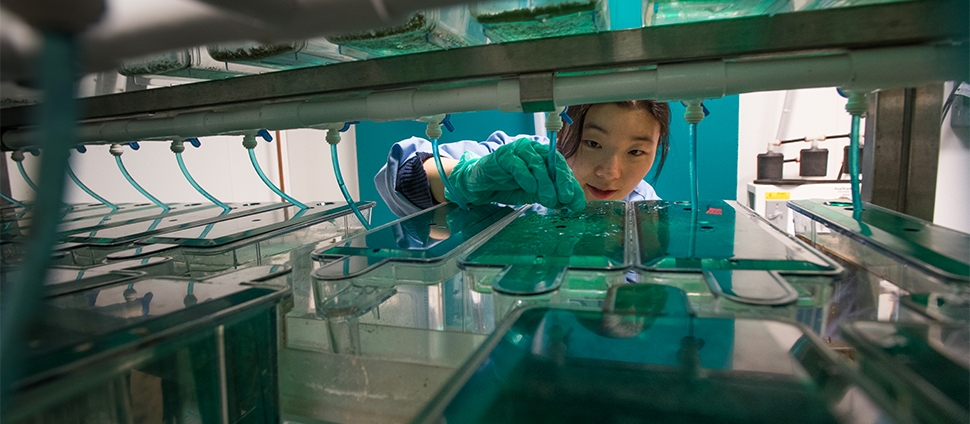Document Type
Article
Publication Date
10-1-2009
Publication Title
BioTechniques
Abstract
PCR-mediated recombination can greatly impact estimates of diversity, both in environmental studies and in analyses of gene family evolution. Here we measure chimera (PCR-mediated recombinant) formation by analyzing a mixture of eight partial actin sequences isolated from the amoeba Arcella hemisphaerica amplified under a variety of conditions that mimic standard laboratory situations. We further compare a new-generation proofreading processivity-enhanced polymerase to both a standard proofreading enzyme and previously published results. Proofreading polymerases are preferred over other polymerases in instances where evolutionary inferences must be made. Our analyses reveal that reducing the initial template concentration is as critical as reducing the number of cycles for decreasing chimera formation and improving accuracy. Furthermore, assessing the efficiency of recovery of original haplotypes demonstrates that multiple PCR reactions are required to capture the actual genetic diversity of a sample. Finally, the experiments confirm that processivity-enhanced polymerases enable a substantial decrease in PCR-mediated recombination through reducing starting template concentration, without compromising the robustness of PCR reactions.
Keywords
Copy number, Cycle number, Gene family evolution, PCR chimera, Template concentration
Volume
47
Issue
4
First Page
857
Last Page
866
DOI
10.2144/000113219
ISSN
07366205
Creative Commons License

This work is licensed under a Creative Commons Attribution 3.0 License.
Version
Version of Record
Recommended Citation
Lahr, Daniel J.G. and Katz, Laura A., "Reducing the Impact of PCR-Mediated Recombination in Molecular Evolution and Environmental Studies Using a New-Generation High-Fidelity DNA Polymerase" (2009). Biological Sciences: Faculty Publications, Smith College, Northampton, MA.
https://scholarworks.smith.edu/bio_facpubs/129


